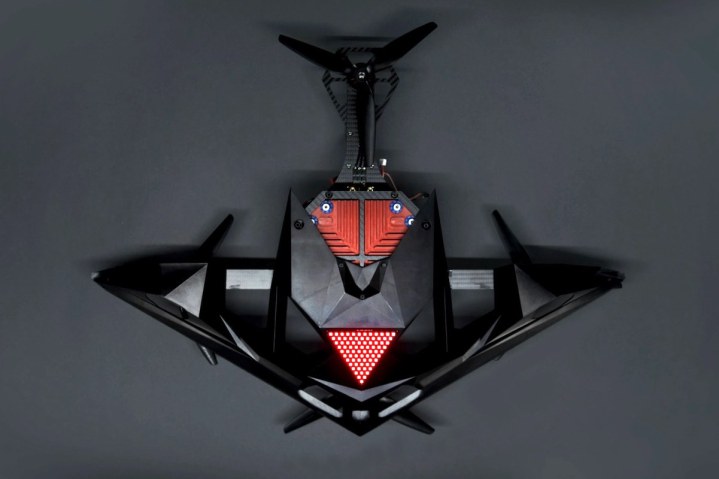
One of the world’s top drone pilots recently took on an autonomous drone in a contest designed to find out if human or machine possess the best racing skills.
In the first competition of its kind, ace drone pilot Gabriel Kocher from Switzerland won the day, beating a self-flying drone programmed by Team MAVLab from the Netherlands.
The showdown, which took place at an indoor venue in Austin, Texas, was organized by the Drone Racing League (DRL) in partnership with aerospace giant Lockheed Martin. Until now, DRL has only organized human-piloted races, but with autonomous technology making big advances, it wanted to launch the first Artificial Intelligence Robotic Racing (AIRR) contest to pit humans against machines.
Wearing a pair of first-person-view goggles, Kocher flew his quadcopter through the obstacle course at high speed in just 6 seconds, while Team MAVLab’s self-piloting machine finished in 12 seconds — without any GPS, data relay, or human intervention to guide it.
The A.I. contest
While no one will doubt Kocher’s expert drone handling, much of the attention was on the racing ability of the A.I.-powered machines.
Nine international teams of students, engineers, and programmers competed in AIRR, with each one providing their own A.I. capable of autonomously piloting a standard, custom-built DRL RacerAI drone (above).
Emerging as the best A.I.-focused effort among the nine competitors, Team MAVLab walked away with a cool $1 million prize that it can use to further develop its autonomous-drone technology. It’s not clear if Kocher won anything, but we’ll update this story if DRL get back to us.
“With every race, the challenge became more exciting,” Team MAVLab said in a message posted on its website. “Our team worked really hard throughout each stage to bring a robust and (most importantly) fast solution to the table, and we are proud to have won despite the remarkable competitors that we had to face.”
All for a good cause
The challenge is designed to advance the development and testing of fully autonomous drone technologies for real-world applications that include disaster relief, search and rescue missions, and space exploration, DRL said in a release.
Autonomous drone technology is already being developed by the likes of Amazon and Alphabet-owned Wing, who both want to use it to launch full-fledged delivery services. While progress has clearly been made in recent years, the Federal Aviation Administration will have the final say on such matters, with the green light coming only when it is properly satisfied that such services can be operated safely and reliably across different locations and conditions.
Editors' Recommendations
- AI drone beats pro drone racers at their own game
- Google Smart Canvas gets deeper integration between apps
- A disembodied robot mouth and 14 other 2020 stories we laughed at
- A.I. fail as robot TV camera follows bald head instead of soccer ball
- Watch Amazon’s new Ring security drone take on a burglar in first ad

